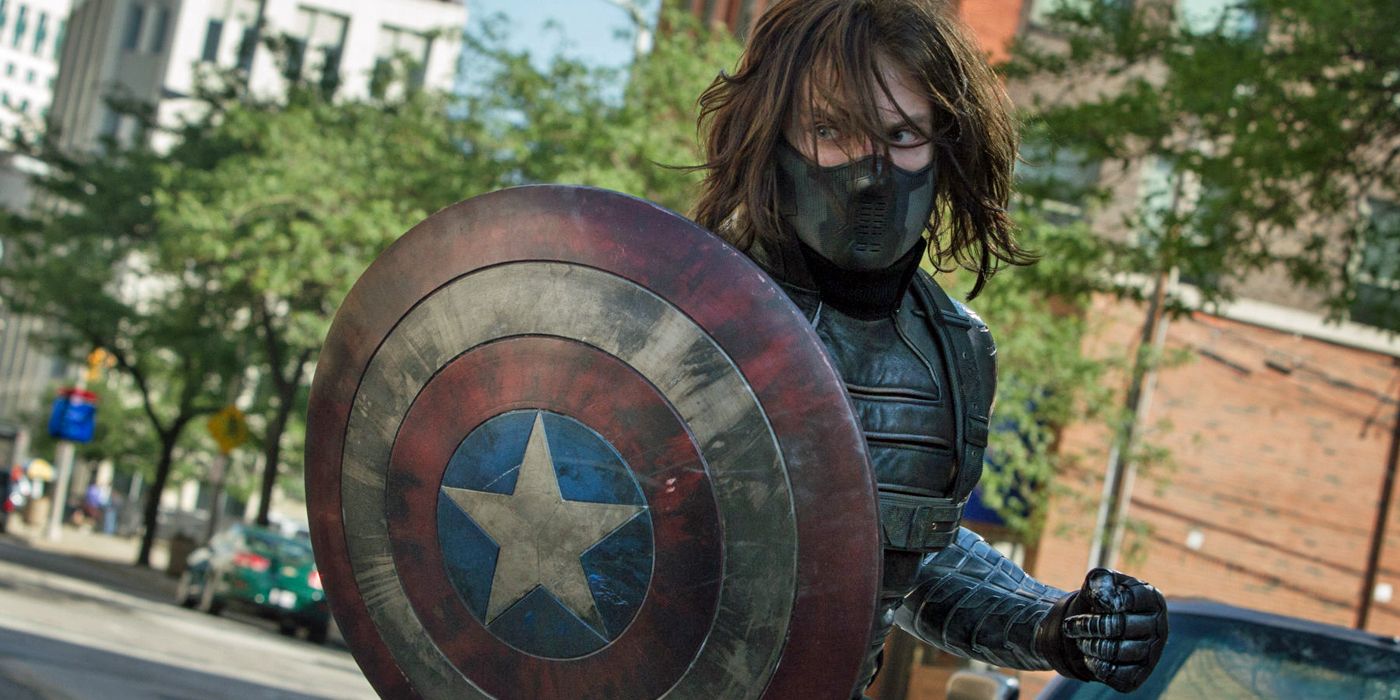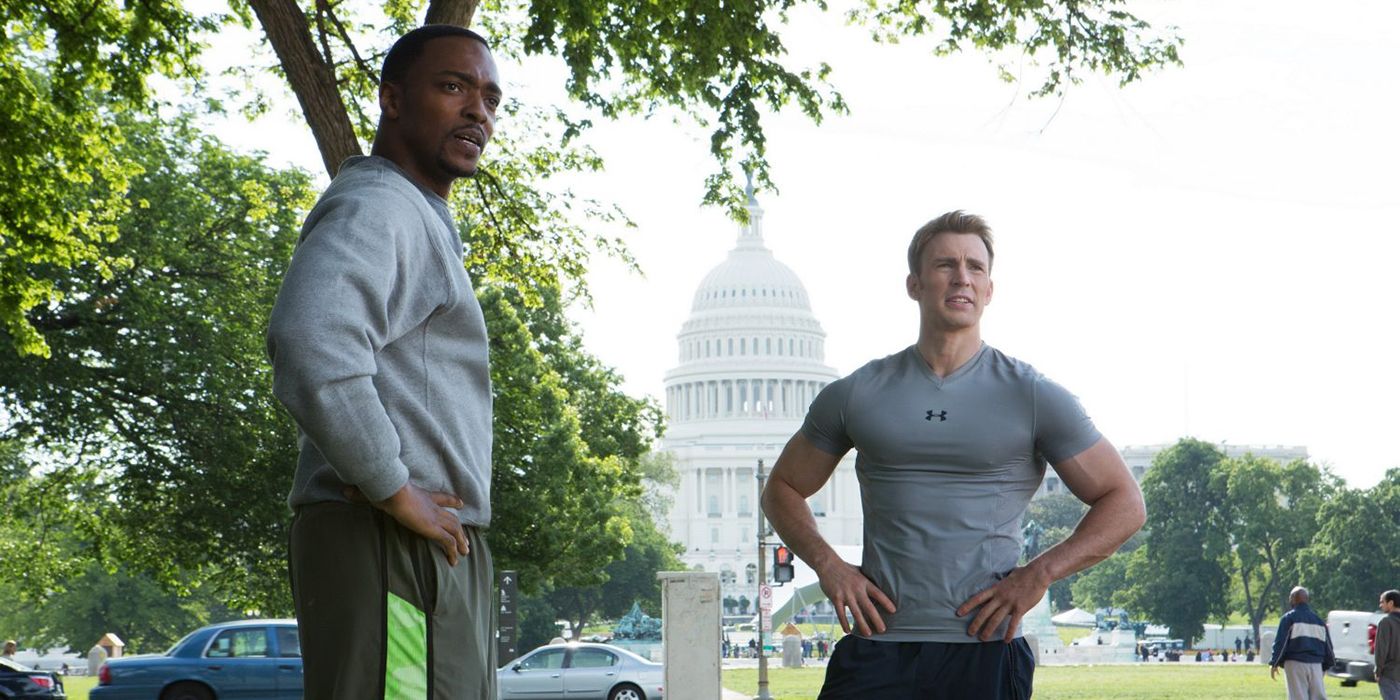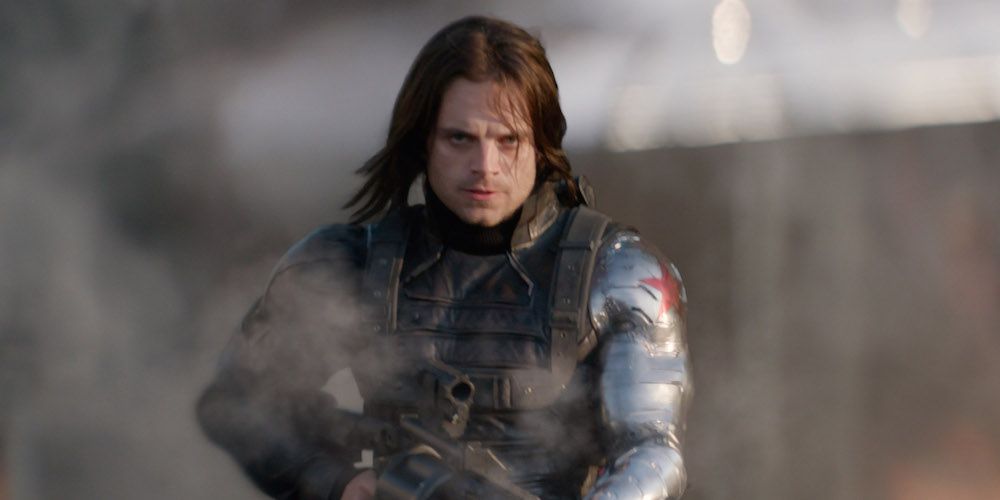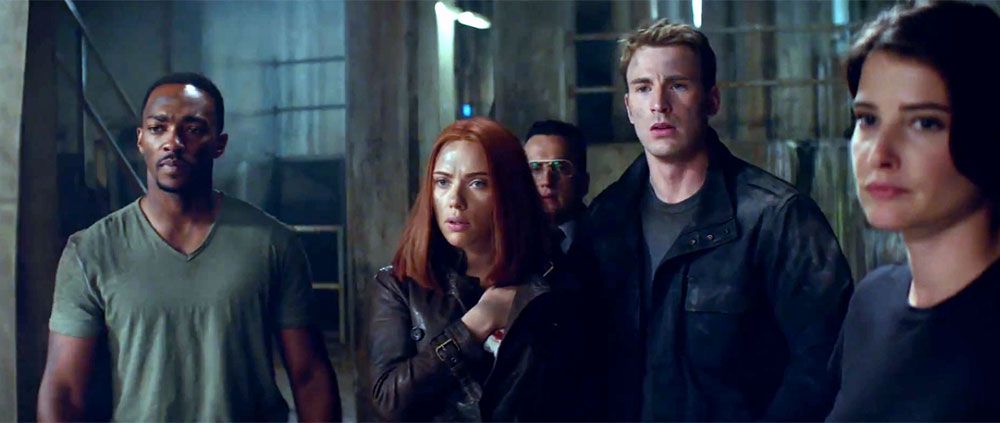As hard as it may be to believe, this week marks the fifth anniversary of the theatrical release of Captain America: The Winter Soldier. The 2014 Captain America sequel was universally acclaimed upon its initial release, a distinction that has only improved over the past five years, and brought directors Joe and Anthony Russo to Marvel Studios. The siblings' partnership with the studio would grow, with the Russos returning to helm Captain America: Civil War, Avengers: Infinity War and, next, Avengers: Endgame. More importantly than the impressive talent behind the camera, however, is how the film itself informed the Marvel Cinematic Universe for years to come, with the fallout from its story impacting its titular characters and more.
Following the World War II hero emerging in present day at the end of Captain America: The First Avenger and joining the eponymous team of 2012's The Avengers, the Russos, with screenwriters Stephen Markus and Chris McFeely, were tasked with creating the MCU's first present day solo adventure for the Star Spangled Avenger. To do so, the filmmakers chose to weave in other previously established characters for the sequel. S.H.I.E.L.D. agents Nick Fury, Black Widow, Maria Hill and Jasper Sitwell all returned with prominent roles in the film, while the sequel also introduced Falcon and Crossbones to the MCU. Most importantly, though, the movie reimagined Steve Rogers' best friend and World War II companion Bucky Barnes as the Hydra assassin the Winter Soldier, based on the classic comic book storyline by Ed Brubaker and Steve Epting. (Brubaker even had a cameo role in the film.)
Of course the biggest twist in the film isn't the reveal of Bucky as the Winter Soldier but rather the truth about Hydra. Despite its apparent defeat at the end of World War II, the rogue Nazi war machine had secretly infiltrated S.H.I.E.L.D. and used the American intelligence agency to further its agenda around the world, subtly shaping the geopolitical stage as part of a long game to subvert humanity to its totalitarian will. Eventually, Captain America and Black Widow realize they have been unknowingly working for the very threat they sought to vanquish for years. By the film's end, Hydra's plot to kill millions around the world has been explosively thwarted, but the after-effects reverberated throughout the MCU for years to come.
The Winter Soldier's immediate fallout would significantly impact the inaugural MCU television series Agents of S.H.I.E.L.D. throughout its first four seasons, as Coulson grappled with the discovery that the agency he had dedicated his life to had been infested and corrupted on every level, from the top down. After his teammate Grant Ward was revealed as a deep-cover Hydra operative, Coulson and his remaining loyal agents fought the nefarious organization, and as S.H.I.E.L.D. crumbled around them, he transformed into harder edged, cynical Coulson, founding a new incarnation of the agency in the original's ashes.
Following Captain America and Black Widow's exposure of its existence, the desperate Hydra organization began using the Mind Stone in Loki's scepter to develop its own metahumans, as revealed in The Winter Soldier's mid-credits scene. Creating the MCU's Scarlet Witch and Quicksilver, the resurgent Hydra would lead to the inciting incident of Avengers: Age of Ultron, which opened with the Avengers destroying the last major Hydra stronghold, deep in the mountains of the fictional Eastern European country of Sokovia. Newly empowered by Hydra, Scarlet Witch would augment Tony Stark's fear of future alien invasions leading him and Bruce Banner to create the titular homicidal robot which lay waste to Sokovia in the film's climactic battle. The legacy of this confrontation would tie together with the last major dangling plot thread from The Winter Soldier to set the stage for the Avengers' eventual schism in Captain America: Civil War.
The Winter Soldier subtly revealed that while operating under orders from Hydra, the brainwashed Bucky Barnes murdered Tony's parents, Howard and Maria Stark. The film's central antagonist, Helmut Zemo, reveals Bucky as responsible after Captain America and Iron Man had tentatively made peace after their explosive disagreement regarding the Sokovia Accords spinning out of Age of Ultron. Their murder, which was caught on video, continues to haunt Tony throughout the events of Civil War. Face-to-face with his parents' killer, an enraged Tony battles Steve and Bucky in an especially brutal brawl that seemingly destroys Captain America and Iron Man's friendship for good, forcing Cap and his allies to go on the run while Bucky took refuge in Wakanda under Black Panther's protection.
From a resurgent Hydra to the murderous legacy of the Winter Soldier, the first Captain America sequel's narrative would have lasting effects on the MCU and it did it without having to involve an Infinity Stone unlike many of its contemporaries. Creatively, the film would encourage future MCU filmmakers to blend outside genres with superhero cinema; the writer and directors inspiration from political thrillers was a strong influence. This genre blend would resurface elsewhere in the MCU, with Ant-Man taking cues from heist films while Spider-Man: Homecoming was inspired by '80s teen comedies.
Perhaps most importantly, The Winter Soldier's big twist gave Marvel Studios the confidence to subvert audience expectations and take larger risks with its properties, from the destruction of Asgard in Thor: Ragnarok to Thanos' final victory in Infinity War.
A tautly paced action film set in the heart of the MCU, Captain America: The Winter Soldier not only holds up as one of the very best movies produced by Marvel Studios but is the franchise's most influential following the first Avengers film. Five years later, its impact continues to be felt while raising the bar of quality, both narratively and creatively, for all of the studio's subsequent installments.




